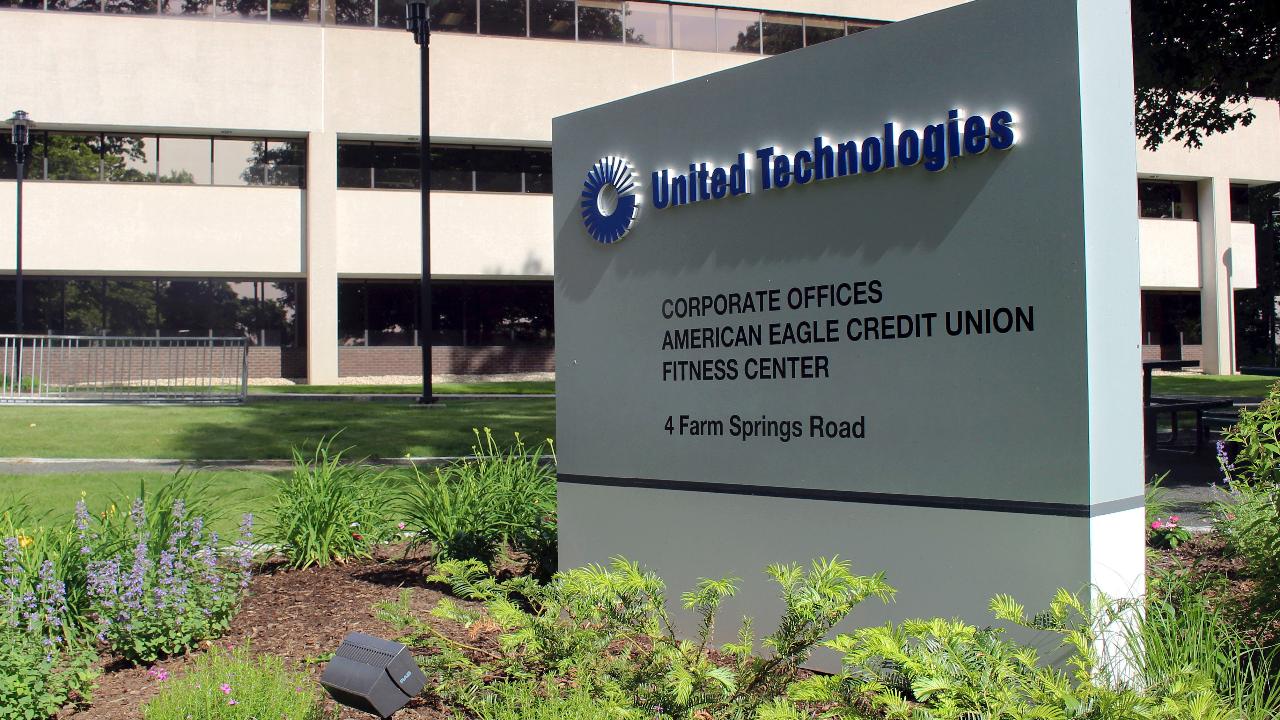Connecticut budget mistake? Tax hikes and lost business
United Technologies is the latest company to announce its departure from Connecticut, after a tax rate increase appears to have contributed to the state’s multi-year corporate exodus.
United Technologies will merge with Raytheon, relocating its headquarters from Farmington, Connecticut to Waltham, Massachusetts – Raytheon’s home base.
Sen. Richard Blumenthal, D-Conn., said the merger raises “doubts about its impact on the Connecticut workforce and economy.” The company's CEO said the move was not motivated by taxes.
United Technologies' departure, though it plans to maintain a presence in the state, is the latest blow to the state’s business presence, as wealthy residents also flee.
A recent report from the Yankee Institute for Public Policy highlights a 2016-2017 biennial state budget that included $1.3 billion in tax increases, which led to “disastrous consequences” for the state economy. Income tax hikes went into effect in 2015 (top rate increased to 6.99 percent from 6.7 percent), while higher corporate rates did so in 2016 (top rate was raised to 9 percent from 7.5 percent).
While the corporate tax increase was expected to bring in $481 million over the course of two years, after some businesses left, the state ended up only bringing in about $323 million, the report noted.
As the state was raising taxes, it was also trying to lure – or keep – companies via an incentive program – which was at least partly comprised of both borrowed and bond funds.
Alexion Pharmaceuticals, which was the largest beneficiary of the state’s incentive program, announced in 2017 that it would no longer keep its headquarters in New Haven – moving, instead, to Boston. Meanwhile, the Connecticut Department of Economic and Community Development spent $26 million on the company, through loans and grants. Alexion repaid some of the money.
General Electric, which warned the state against hiking its tax rates, left Connecticut in 2016. It also relocated to Boston. Drugmaker Bristol Myers-Squibb left the state the same year, headed for New York, while advanced materials company Rogers Corp. fled to Arizona.
Hallmark and the Royal Bank of Scotland have cut jobs in the state.
Health insurer Aetna had announced it was relocating to New York City, but after it was acquired by CVS in a $69 billion deal, the companies decided not to make the move just yet. Aetna will remain in Connecticut for about another 10 years. CVS Caremark Corporation is headquartered in Rhode Island.
Chris Edwards, director of tax policy studies at the Cato Institute and editor of www.DownsizingGovernment.org, previously told FOX Business that the business exodus is unsurprising since the state not only has high corporate taxes, but also high property taxes – which hurt businesses as well as homeowners.
Record levels of individual outmigration were seen between 2015 and 2016 – including a $2.5 billion net loss from households earning more than $200,000. Job, wage and economic growth also stagnated.
Outflows have continued. As previously reported by FOX Business, of the moves conducted within Connecticut last year, 62 percent were outbound – the third highest of any state. Those with incomes of $100,000 or higher made up the largest share of exoduses.
The outflow of residents is also bad for the business climate since companies typically want to be located where they not only have favorable tax rates, but also access to talent.
CLICK HERE TO GET THE FOX BUSINESS APP
The state is still grappling with fiscal problems. Connecticut is facing a projected budget deficit of about $3.7 billion over the next two fiscal years. It is also dealing with unfunded pension liabilities that amount to $32,805 per person.
According to a 2018 Tax Foundation analysis, Connecticut collected the second most in per capita state and local individual income taxes.




















